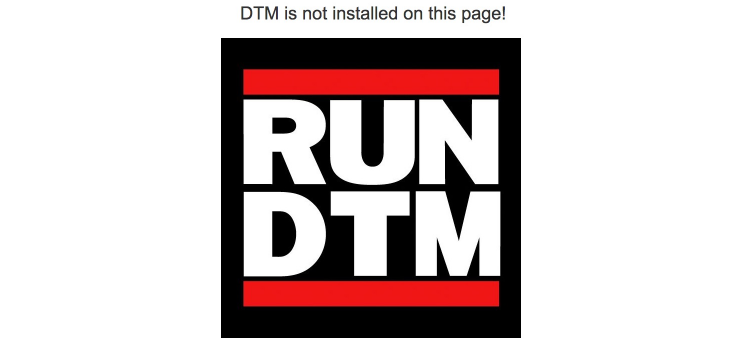
When to use and when NOT to use DTM
05 Dec 2015 » Launch
A while ago, a customer requested a call with me to discuss one issue. Usually, I get more technical questions, but this time, he wanted to have my input regarding something completely different. The developers had realised that they forgot to include a JavaScript library in the website and they could not add it immediately, due to code freeze. They thought of an alternative solution: load it through DTM. My customer, from the marketing department, was not sure whether this was possible or acceptable and, therefore, wanted to know my point of view.
I must admit that, initially, I was a bit perplexed and did not know exactly what to reply. This was the first time I received this question and I had never thought about it. However, I quickly came with a proper answer and this is what I suggested. It must be noted that this is my personal perspective, not Adobe’s.
In order to reply to this question, you must first think about governance. Who manages DTM? Who owns DTM in the company? What is the purpose of using DTM? I think that DTM is a marketing tool, managed by the marketing department, used to deploy marketing tags in a website. So, if the new piece of code that needs to be added to DTM is requested by the marketing department, then it will probably make sense to use DTM; on the other hand, if it is the IT department requesting the addition, I would recommend against using DTM for it.
Technically, it is possible to deliver any JavaScript (and even HTML) through DTM. However, the fact that it is possible does not mean that it should be done. Think about the following questions when adding a piece of JavaScript that was not requested by the marketing department: who owns that piece of code? who updates it? who fixes it if stops working? who is to blame if it is inadvertently removed? what happens if DTM is removed? The marketing team will not want to take any responsibility of code they do not even understand.
So, to summarise, from my point of view, here you have some cases that are suitable for DTM and cases that are not:
- In DTM:
- Web Analytics tags (like Adobe Analytics)
- Optimisation code (for Adobe Target, for example)
- DMP tags (AAM also has a module in DTM)
- Third party re-marketing tags
- On-site surveys
- Not recommended in DTM:
- Generic JavaScript libraries (for example: jQuery)
- Website functionalities (chats, UI effects)
- Code that needs to be executed in a very specific location of the page (i.e. not at the top or the bottom)
- CMS libraries
Can you think of any other case that would fit in one or the other case? If so, please, leave a comment!